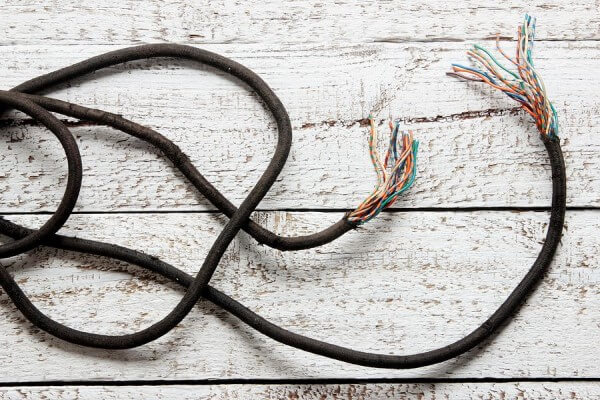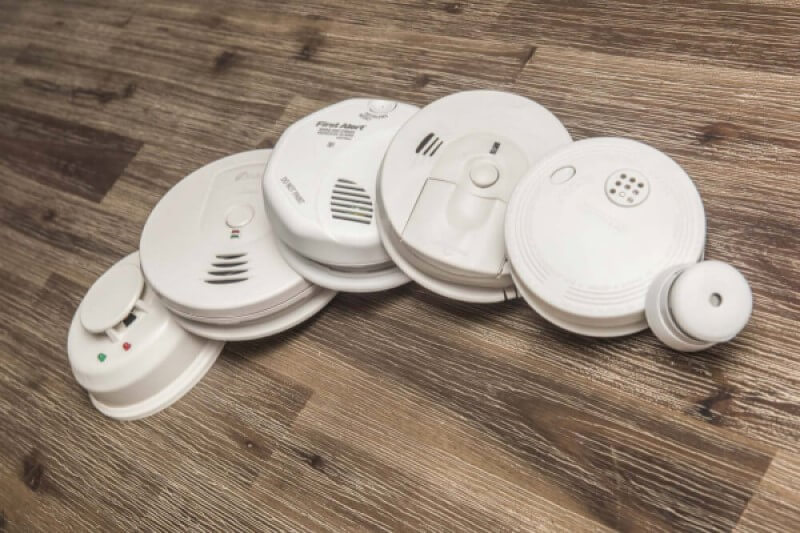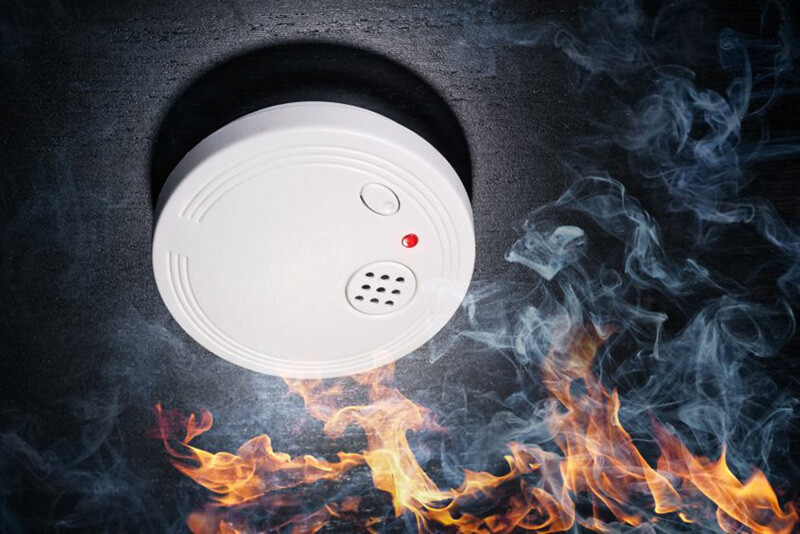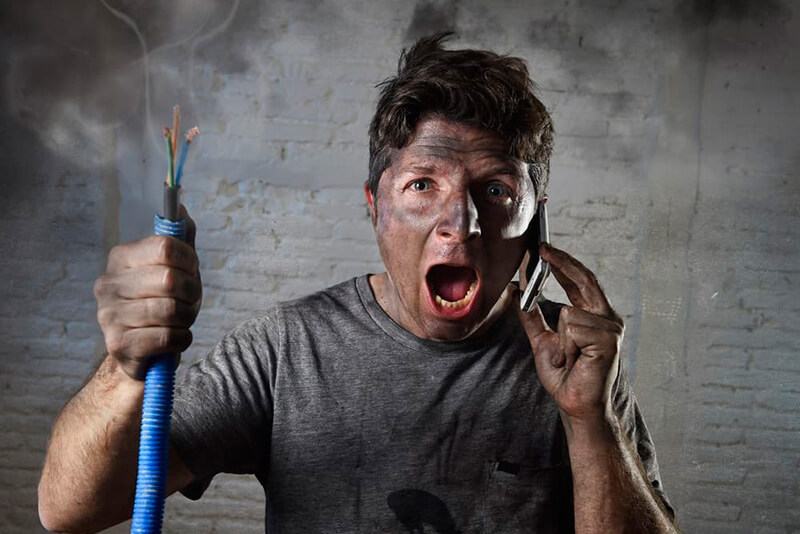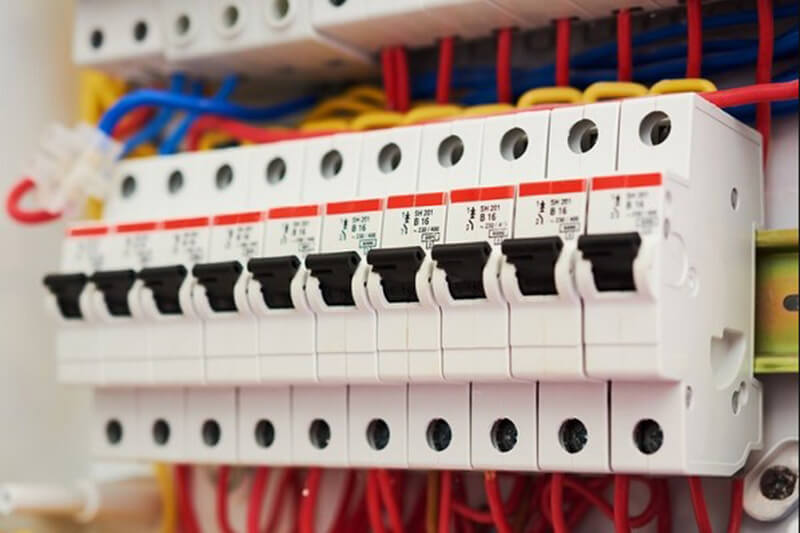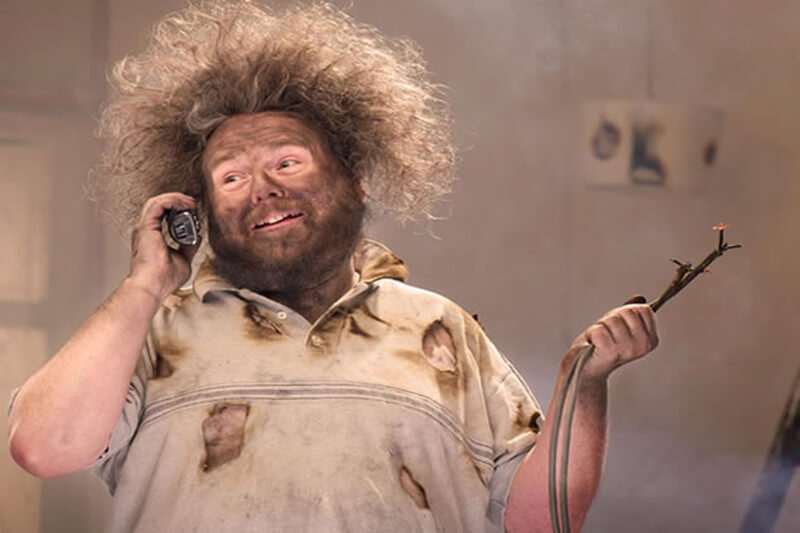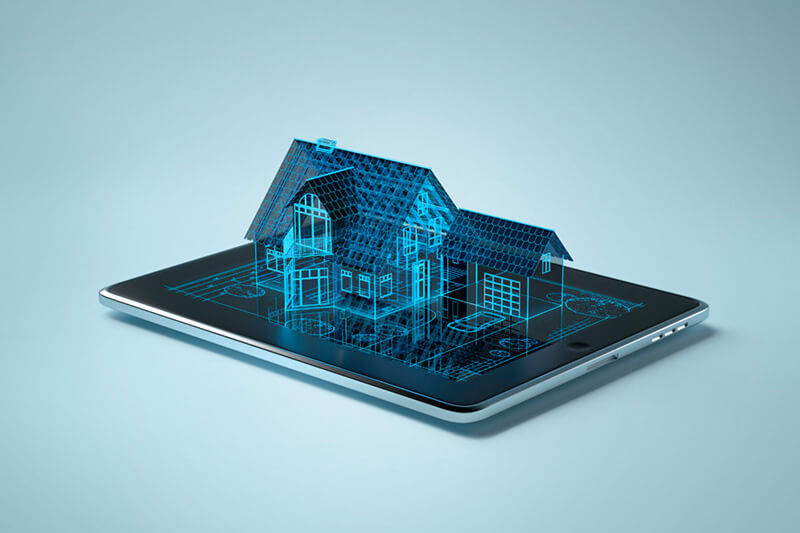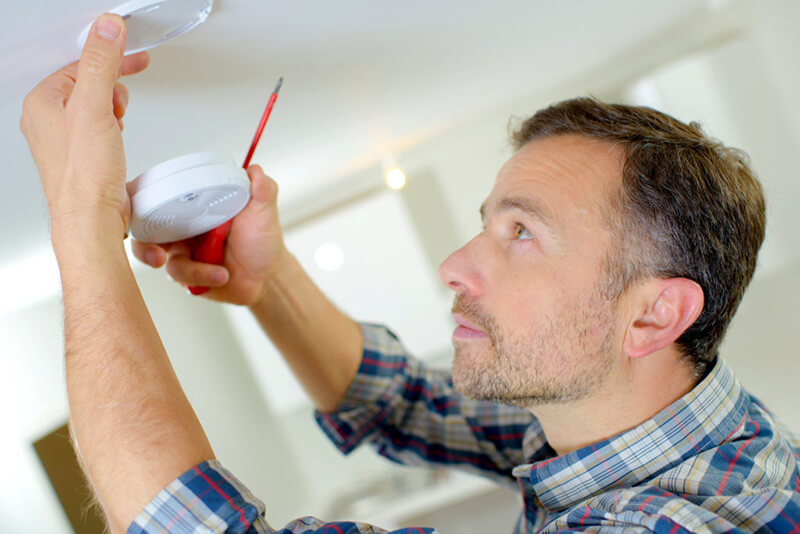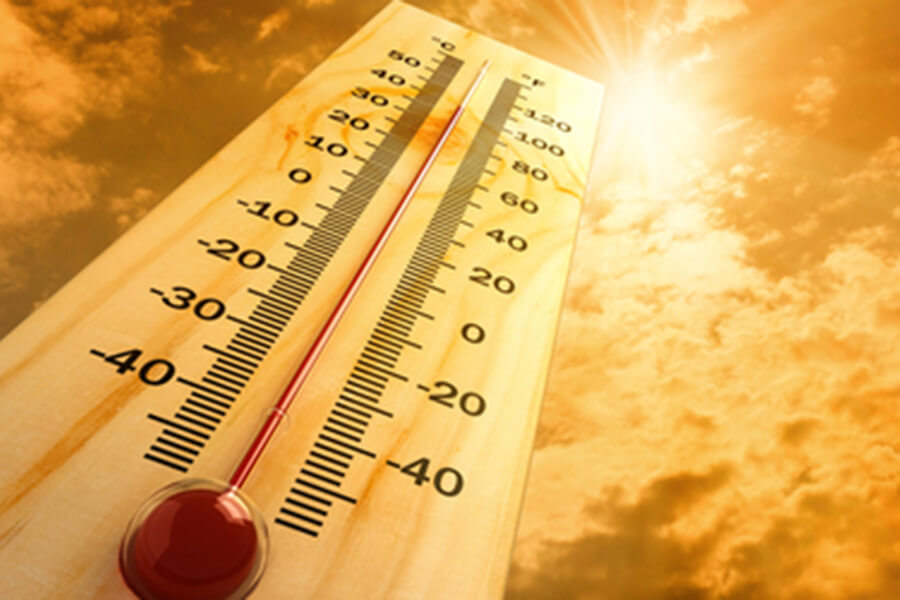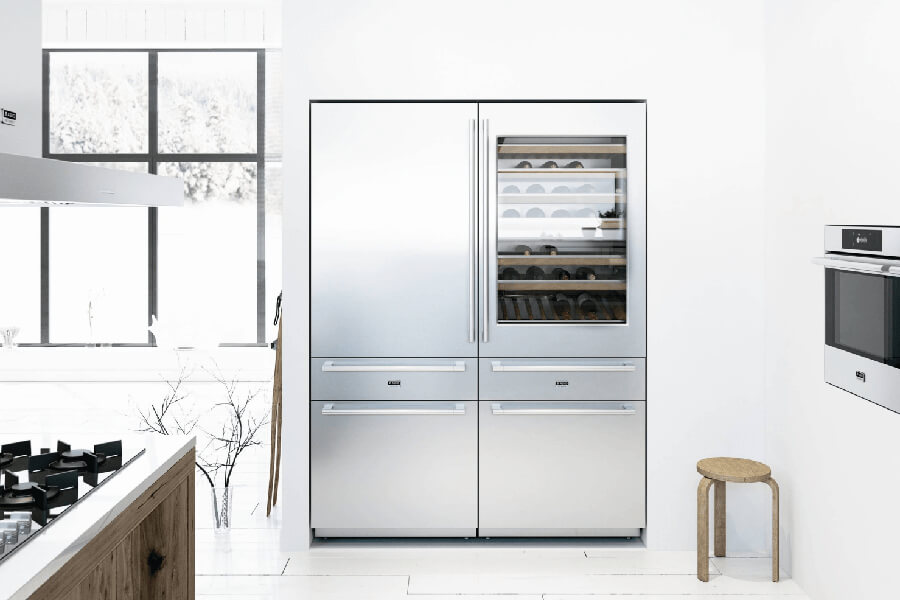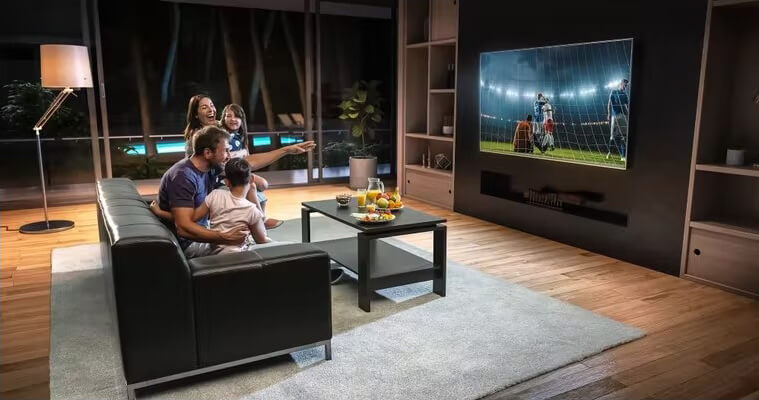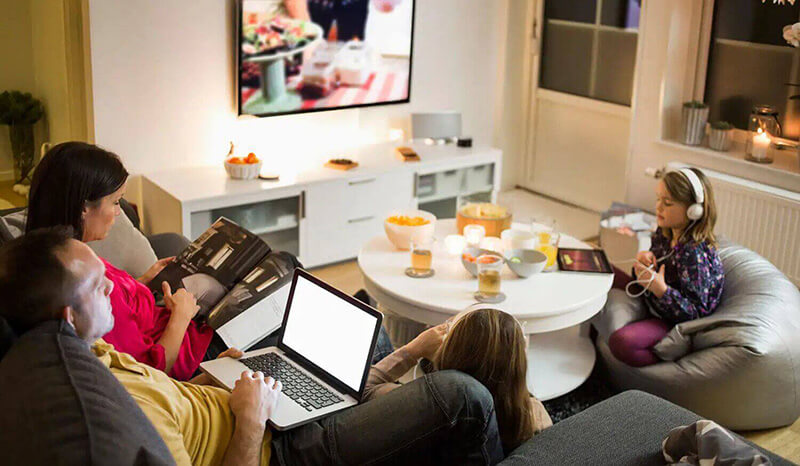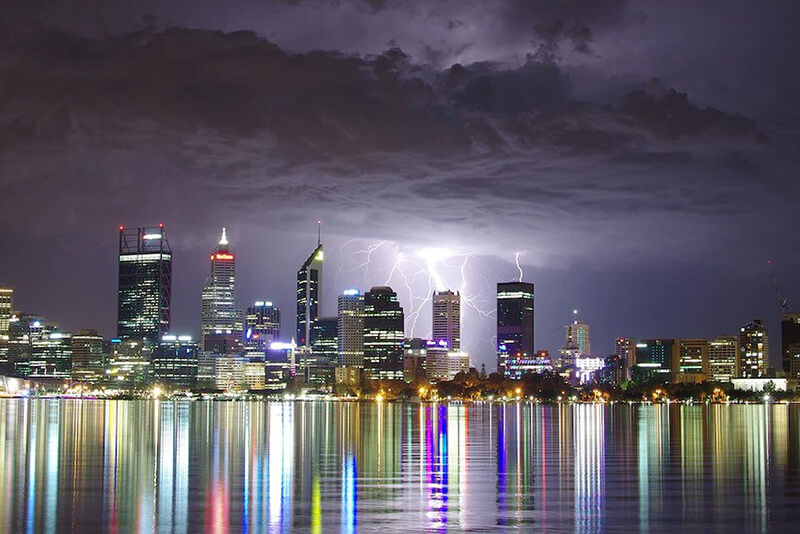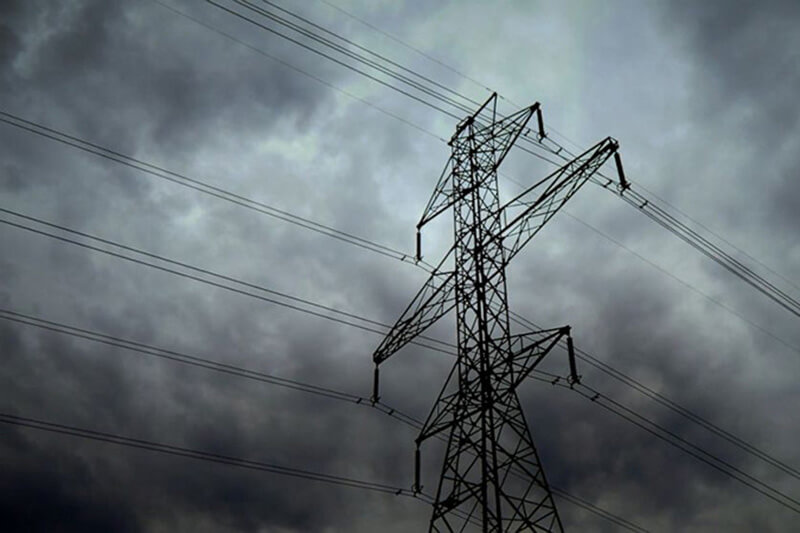Money Saving Tips &
All Things Electrical
from WA’s Favourite Sparky!
We are passionate about electrical and passionate about people
So we’ve put together tips, tricks and how to’s to show you how you can:
- Save money on your electricity and
- See how things are done so you know what to expect when professional electricians come to you.
Our latest articles:
VIR Cabling – Why so dangerous?
After the advent of electricity and electrical appliances between the 1880s-1910’s, wiring found its way into many people’s homes. Wiring was mostly sheathed by various materials – from sap to paper and, more commonly, tar or rubber (really another type of sap). After this period, a new “better” type of wire was discovered, VIR (Vulcanised Indian Rubber) which seemed to
How do Smoke Alarms Work?
Smoke alarms became a common household item in the 1970’s, and since then they have saved countless lives. In fact, early fire detection has reduced the number of house fires by over 50%! Sarros Electrical are experts in smoke alarm installation throughout Western Australia, keeping Aussie families safe! So, how do these miracle devices actually work? What makes them so
How much does an electrician cost in Australia?
The cost of living is rising, and you need to look after your hard-earned money. We get it, we really do. Our electricians have young families themselves and Sarros Electrical is WA family owned and operated. That’s why we like to be transparent when it comes to costs, so you can use your money wisely and see for yourself why
Smoke alarms for the deaf and hard of hearing
Did you know that 3.6 million Australians suffer from some form of hearing loss? In fact, this number is expected to double to approximately 7.8 million by 2060. If you find yourself in this situation and a fire alarm goes off, how can you effectively hear the alarm? Read on to learn about different smoke alarms that help the deaf
What to do in an Electrical Emergency
Thankfully electrical emergencies are few and far between in Australia – but they still happen! Electrical emergencies range from small power failures or a burnt power outlet to fallen power lines and electric shock. This article covers what to do in the following electrical emergencies: If someone gets an electric shock If there’s an electrical fire If there’s fallen power
What are Type A RCDs and Why Are They Replacing Type AC RCDs?
There are many different types of RCDs, each with their own pros and cons. An RCD that was commonly used in Western Australia is the Type AC RCD. However, as of April 2023, Western Power released an update in line with a new Australian Standard that says: “As stipulated in AS/NZS 3000:2018 Wiring Rules clause 2.6.2.2.2, Type AC RCDs must
When should I call an emergency electrician?
Exactly what situations call for licensed and professional electrical assistance? No doubt, electrical emergencies may make you grind over the thought of the sudden, unplanned expense versus the issue of safety – and getting things working again! Are you facing one of the following situations? Do these situations call for an emergency electrician? Your power is out Smoke is coming
7 Ways Smart Homes Save You Energy
Are your energy bills testing the limits of your pockets? Are you tired of family members leaving the lights on when no one’s in the room? Do you find yourself unplugging unnecessary devices? You’re not alone! In today’s modern world, many electrical appliances draw on our electrical power and unnecessarily up our energy bills. But there’s one new technology that
How many smoke alarms do I need?
Nothing is more important than the safety of our loved ones. However, the sheer volume of information regarding fire safety can be daunting. We’ve dug through the forms, legislation and housing acts to bring you a guide on how many smoke alarms you need for your home. As always, be sure to check with your local authorities to be sure.
7 Energy Saving Tips to Keep Summer Cool
Summer is coming and the temperature is rising! How can you stay cool without burning the budget on the A.C.? Read on with our 7 tips to keep cool without breaking the bank this Summer. Some tips are surprisingly simple, using passive laws of nature to your advantage! Energy Saving Tip 1: Check your air conditioner’s filters An air conditioner
Or jump to your desired category:
- See our energy saving tips
- Tips for projects and DIY
- Being safe around electricity
- Interesting info about all things electrical
All our electricity saving tips:
7 Ways Smart Homes Save You Energy
Are your energy bills testing the limits of your pockets? Are you tired of family members leaving the lights on when no one’s in the room? Do you find yourself unplugging unnecessary devices? You’re not alone! In today’s modern world, many electrical appliances draw on our electrical power and unnecessarily up our energy bills. But there’s one new technology that is opening up a wide range of exciting possibilities: The smart home. The many innovations with smart homes gives you ultimate control over your energy usage – right at your fingertips. Read on and see our 7 tips on how you can save energy with your smart home now. 1. Smart Sprinklers Okay, you got us! This isn’t technically saving electricity, but it can still save you resources and money, so we figured we’d throw it in! Firstly, what is a smart sprinkler? Smart sprinkler systems are an automatic irrigation system that utilizes a variety of cutting-edge techniques to optimize water usage in residential and commercial irrigation systems. In essence, a smart sprinkler system uses a series of algorithms to read the local conditions, such as current moisture levels, forecasted weather conditions, current temperature, and so on to figure out
7 Energy Saving Tips to Keep Summer Cool
Summer is coming and the temperature is rising! How can you stay cool without burning the budget on the A.C.? Read on with our 7 tips to keep cool without breaking the bank this Summer. Some tips are surprisingly simple, using passive laws of nature to your advantage! Energy Saving Tip 1: Check your air conditioner’s filters An air conditioner pulls in surrounding air, cooling it down, then releasing it back into the house. The process is simple and effective as you can likely attest to on a hot summer day. However, the air that is first sucked in for cooling must pass through an air filter. Just like trying to breathe through a mask is noticeably more difficult, an air filter that isn’t clean or has become blocked must work harder to accomplish the same task. What does this mean? It means your A.C. is working harder than it needs to when the air filters are dirty. This wastes energy and means you’ve got to cough up more money for your power bills! Studies have shown that by replacing your filter or even simply giving it a gentle clean, you can save energy – even up to 15%. A
8 Ways to Save Electricity with Your Fridge
The household refrigerator is perhaps the hardest working appliance in the entire Aussie household, being on call 24 hours a day, 7 days a week, 365 days a year! This means it potentially has the highest energy consumption of all your household appliances. But not all is lost! What if there was a way to reduce your cooling expenditure and promote a cleaner, more sustainable way of living? Take a look at these 8 easy ways to save electricity with your fridge and you’ll see how you can save on your power bills. After all, the greenest watt is the watt you don’t have to use. 1: Clean those coils! The coils located outside your fridge are part of the mechanism directly responsible for removing heat from your food and keeping it cool. However, fridge coils tend to be a magnet for dust and dirt. Especially for those of us that enjoy having pets around the home. As a result, this grime builds up and insulates the coils, making it harder to remove heat from your chilled goods. Results have shown dirty coils can reduce efficiency by up to 30%! To save some coin, first unplug your fridge and give
15 Ways to Save Electricity in the Kitchen
Many Australians are more than conscious of the rising cost of living lately so we here at Sarros Electrical put our heads together to create a list of pointers that will help you save electricity in the kitchen. We were amazed that even small changes to our daily habits and using nature to our advantage can make a big difference on power consumption in our kitchens, ultimately reducing our average power bill! You can save electricity in your kitchen too! Take a look at our list of 15 ways to save electricity in the kitchen so you can save on your electricity bills. We’ve also included a bonus tip on how to save on gas consumption at the end. Saving electricity across the board Here’s a few tips to keep in mind in general. 1: Unplug unused appliances Appliances often consume a trickle of electricity when left on standby drip feeding your electricity bill! Unplugging or turning off the power point to appliances you’re not currently using, such as the microwave, dishwasher, and electric oven, will ensure the electricity you pay for is only used when you need it. Fridges and freezers need to stay on all the time though
Projects and DIY Tips:
9 Outdoor Christmas Lighting Tips That will Light Up Your Home – Without any Smoke!
Christmas is coming! Families are getting together and the light shows are starting! However, it’s probably been close to a year since you’ve considered how to tackle the tangled Christmas lights! If you’re not sure where to start, don’t panic! Simply read our complete guide to outdoor Christmas lighting to help you stay safe & happy when it comes to decorating your home. Apply the following 9 tips to light up your home and make it stand out – the merry kind of way! Tip 1: Safety first – always Our sparkies would be millionaires if they got a dollar for every time they heard the word ‘safety’ at Sarros Electrical! Unsurprisingly, we figured this is a great place to start when it comes to hanging out your Christmas decorations and lights. Before plugging anything in, or even before hanging things up for that matter, we suggest taking stock and visually checking any decorative lights you already have. Most people figure they need to buy new fairy lights, but most boxes come with spare bulbs that can replace any broken ones, saving you from buying more. Additionally, by first examining the wires connecting the bulbs, you can see if any
7 Tips for Building Your Perfect Home Theatre
Thanks to technology becoming more and more affordable, many Australian families are now enjoying the theatre experience in the comfort of their own homes. Building or remodelling your home to include a dedicated home theatre is an exciting task that is sure to bring hours of entertainment to your family and friends with style. But there’s more to it than meets the eye! We at Sarros Electrical have helped wire up and install many home movie rooms! Regardless if you’re converting an existing room into a home theatre set-up or if you’re creating a brand new setup, we wanted to share with you 7 important things to think about that makes your home theatre a great home theatre. They are: Determine the ideal size of your home theatre. Find the ideal location of your home theatre in the home. Choose the best screen and screen size. Lighting is important. Ensure good sound. Keep the sound where it belongs! The ideal seating location. Tip 1: When it Comes to Home Theatres, Size Matters! This sounds obvious, but think carefully about exactly what you’re willing to put into your home theatre project, and what you want to get out of your home
Electrical Safety:
VIR Cabling – Why so dangerous?
After the advent of electricity and electrical appliances between the 1880s-1910’s, wiring found its way into many people’s homes. Wiring was mostly sheathed by various materials – from sap to paper and, more commonly, tar or rubber (really another type of sap). After this period, a new “better” type of wire was discovered, VIR (Vulcanised Indian Rubber) which seemed to be the silver bullet to all wiring problems. As a result, VIR was installed in tens of thousands of Australian homes between 1910-1960. But the silver bullet of VIR cabling would quickly fade! The Dangers of VIR Unlike modern electrical wiring, VIR begins to decay over time. Initially, it was found to be resistant to abrasion, corrosive-resistant, and waterproof. To top it off, it was relatively inexpensive to produce. The seemingly perfect solution! However, despite its amazing properties, there was a glaring problem lurking just beneath the surface. Much like an old rubber band, VIR will first become brittle, split, and fracture. After completely drying off, it will expose the live wires underneath. Why is this of concern? When a wire loses its protective sheath or cover, the possibility of it coming into contact with other materials arises. If it
How do Smoke Alarms Work?
Smoke alarms became a common household item in the 1970’s, and since then they have saved countless lives. In fact, early fire detection has reduced the number of house fires by over 50%! Sarros Electrical are experts in smoke alarm installation throughout Western Australia, keeping Aussie families safe! So, how do these miracle devices actually work? What makes them so effective at saving lives? Let’s find out about the 2 most common types of smoke detectors. Smoke alarm type 1: Photoelectric detectors The word photoelectric comes from the Greek word phot meaning light, and electric, obviously anything relating to electricity. So how do they work together? Imagine the inside of a smoke alarm being like a long rectangular room. A beam of light continually shines across the room, uninterrupted. When the air is clear, the light passes straight through. This is what the inside of a photoelectric detector looks like normally. But, if a lot of dust and smoke enters this rectangular room, the path of these horizontal traveling beams is interrupted, some beams of light will bounce off the smoke and dust into the roof and floor. When the sensor on the floor detects light, it turns it into
Smoke alarms for the deaf and hard of hearing
Did you know that 3.6 million Australians suffer from some form of hearing loss? In fact, this number is expected to double to approximately 7.8 million by 2060. If you find yourself in this situation and a fire alarm goes off, how can you effectively hear the alarm? Read on to learn about different smoke alarms that help the deaf and those hard of hearing. How a smoke alarm works Before we go into different smoke alarm systems that alert the hard of hearing, let’s briefly learn how smoke alarms work – how they detect smoke. Smoke alarms typically use one of two methods to detect smoke in the air. The first involves a constant light beam passing across a sensor. When smoke particles interact with the beam, the beam no longer correctly hits the sensor. This sends an alert to a speaker, causing an alarm bell to ring. The second method uses a small amount of radioactive material safely concealed in the alarm; this material ever-so-slightly charges the air creating an electrical current. Under normal circumstances this charge should remain constant, however when charged smoke particles enter the alarm, they shift this current out if it’s normal operating range,
What to do in an Electrical Emergency
Thankfully electrical emergencies are few and far between in Australia – but they still happen! Electrical emergencies range from small power failures or a burnt power outlet to fallen power lines and electric shock. This article covers what to do in the following electrical emergencies: If someone gets an electric shock If there’s an electrical fire If there’s fallen power lines If your property gets flooded If your power keeps tripping If your power points are burnt If there’s a power outage Read on and learn how to best manage common electrical emergencies and what you can do to keep yourself safe in future! If someone gets an electrical shock Electrical shocks happen suddenly and unexpectedly. It’s important to keep a clear mind and follow these steps to best help a victim. What to do: If the electric shock was momentary, check that the person is responsive and get them to immediately move away from the source of the shock. Don’t touch anyone going through an electric shock as you may also receive an electric shock. Don’t touch the source of the shock yourself. If the shock was major or the person is disoriented or non-responsive, immediately call for medical
When should I call an emergency electrician?
Exactly what situations call for licensed and professional electrical assistance? No doubt, electrical emergencies may make you grind over the thought of the sudden, unplanned expense versus the issue of safety – and getting things working again! Are you facing one of the following situations? Do these situations call for an emergency electrician? Your power is out Smoke is coming out of an appliance or power outlet The curtains don’t match the lampstand How can you tell when it’s time to bite the bullet and call for a fully licensed electrician like Sarros Electrical? Read on to learn more about common electrical emergencies. If there’s sparks flying! We’re talking the electrical type of sparks! To be honest, every time you connect an appliance to live power, a spark jumps across just before physical connection is made. Sometimes you’ll see or hear this spark, but it doesn’t signal an emergency – in fact it’s quite natural and is known as arcing (plugging in faster will help mitigate this). The sparks you need to watch for include: Long-lasting sparks: As opposed to a brief arcing spark, any spark that lingers and fizzles is a sure sign there’s a problem. Call an electrician
How many smoke alarms do I need?
Nothing is more important than the safety of our loved ones. However, the sheer volume of information regarding fire safety can be daunting. We’ve dug through the forms, legislation and housing acts to bring you a guide on how many smoke alarms you need for your home. As always, be sure to check with your local authorities to be sure. When it comes to smoke alarms, states and territories base their legislation on guidelines set by the Australian Federal Government. Modifications to suit specific, local needs are then set by the state or territory. With this in mind, most of our research has been taken from the Australians Standards Mark AS 3786, we’ve added this link for you in our further reading section. This way you can stay up to date with the current laws and be as informed as possible. So, how many smoke alarms do I need? Returning to our main topic of how many alarms are required in a home, the answer is… it depends! Depends on what? It depends on: The size of your home The layout of the house including bedroom locations, etc. Also, mains powered smoke alarms must be installed: By a certified electrician
Protecting Your Family – 5 Things You Should Never do with Power Boards
All Australians need to use electricity to keep their house running and their lives moving, but above all, we want to keep our family safe, here at Sarros Electrical we’ve put together a recommendation of the top 5 things you should never do with power boards to protect your home and family. 1: Don’t give into the temptation to Overload! We’ve all realized at one point or another that our house doesn’t have enough power points to support our ever-increasing demand for electricity, however chaining power boards together is never the answer. Known as “Daisy Chaining” in the electrical industry, this process of plugging in one power board to another causes more electricity to flow through the first power boards than originally designed. As a result of excessive electricity flowing, more heat is created which unfortunately can lead to fire hazards in the power board. Just think of electricity as a roadway. The mains power connecting your house is the freeway. The wiring in your walls are the main roads, and your power board is a single lane street. The more things you connect to a power board, the more traffic needs to flow through it. Don’t connect all your
All our useful info:
How much does an electrician cost in Australia?
The cost of living is rising, and you need to look after your hard-earned money. We get it, we really do. Our electricians have young families themselves and Sarros Electrical is WA family owned and operated. That’s why we like to be transparent when it comes to costs, so you can use your money wisely and see for yourself why Sarros Electrical are WA’s trusted electricians. We also love life hacks such as saving electricity in the kitchen and around the house during Summer. But for now, read on to find out how much an electrician costs in Australia and how to choose a good electrician that will leave you with no regrets. This information was last updated in 2023. What you should know beforehand It’s very easy for us to think that cheapest is best, but when it comes to something as dangerous and as important as electricity, it’s important to not just weigh up the dollar, but safety and quality too. Before choosing an electrician, think about the following: Are they licensed? Legally, every electrician in Australia must be licensed and they should be ready to show you that licensing upon request. If your current electrician is hesitant
What are Type A RCDs and Why Are They Replacing Type AC RCDs?
There are many different types of RCDs, each with their own pros and cons. An RCD that was commonly used in Western Australia is the Type AC RCD. However, as of April 2023, Western Power released an update in line with a new Australian Standard that says: “As stipulated in AS/NZS 3000:2018 Wiring Rules clause 2.6.2.2.2, Type AC RCDs must not be installed in Australia from 30 April 2023.” This means Type AC RCDs are no longer used by licensed electricians; Type A RCDs are used instead. What’s the difference between Type A and Type AC RCDs? Is there any benefit in introducing this Australian Standard and changing compliance laws? Why Type A is the go to RCD As of April 2023, all electrical installations will not pass compliance if they contain a Type AC RCD. That is why the Type A RCD is now the go to. Western Power states that any Preliminary/Notice of Completion submitted after the date of the 30th of April 2023 requires Type A RCD switch installation, to assist with the protection of circuits containing both AC and DC electrical components. Use of Type AC RCDs after April 2023 is illegal and as a result,
Why is the power out in my area?
There’s never a perfect time for the power to go out while you’re at home, especially when you’re in the middle of watching your favourite TV show, running your laundry, or heating up dinner in the microwave. Electricity has become such an integral part of our lives and we realise this most when we don’t have it! Common causes of power outages …and how to fix it! Power outages occur due to one of two reasons – an internal cause (something that happens on your property) or an external cause (something that happens to the public power grid). This article looks at: Why do residential power outages happen? What causes power outages? and what can you do to get blackouts fixed? Determining the source of the blackout The quickest way to find out the source of the power outage is to see if your neighbours’ power is also out: If it’s night-time, are your neighbours’ lights on? Are the streetlights on? If the street and your neighbours have power, then the cause of your power outage is most likely internal or coming from a fault within your property. Look through the common internal causes of power outages outlined below and
Who to Call When the Power is Out
Has the power gone out in your area? We feel you! You don’t know what you have until it’s gone! Power outages never occur at a convenient time. It almost always happens when you haven’t saved your work, you’re watching your favourite TV show, or the washing machine is half way through a cycle! Reporting power outages can help electricity distributors (or power utility companies) respond faster to incidents, ensuring everyone is safe and powering along nicely. Simply click on your state or territory below to find out who to call to report a blackout or other incident involving power infrastructure. All contact numbers are open 24/7. ACT New South Wales Northern Territory Queensland South Australia Tasmania Victoria Western Australia Remember, call 000 for any emergencies with an immediate danger to life or property …Or is it just you? If it’s only your home without power, then check your switchboard to ensure all switches are on. If a switch doesn’t stay on after attempting to flick it on, there may be an electrical fault on your property that requires a licensed electrician to investigate. For those of us in Perth, the Peel and South West WA, Sarros Electrical are here

